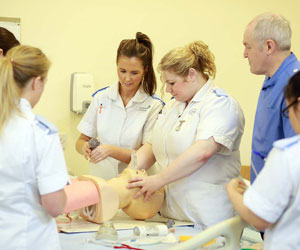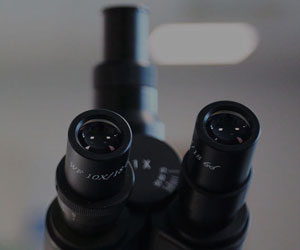For the PGCert: Emergency Care: Practice Development, you will be required to undertake the following core modules:
- Consultation and Physical Examination: Health Assessment Skills (20 credits)
- Care of Minor illness and Minor injuries (20 credits)
- Management of Acute Illness and Major trauma (20 credits).
The Consultation and Physical examination skills module run over 2 semesters and is taught by distance learning. The Consultation and Physical examination skills module requires you to be deemed competent in the physical examinations and you will need to have access to a relevant clinical area in order to practise and achieve these competencies.
Graduate destinations
This course is a vital steppingstone that will help you to improve your abilities and to impress senior decision makers. Whether you intend to pursue further study, seek promotion, or to improve you effectiveness in your current position, this course will support you in taking your next step.
Course outline
Course summary
You'll learn how to develop your knowledge and skills in emergency care. You will study 3 specially selected modules in minor and major illnesses and trauma, and Consultation and Physical examination skills. These 3 modules have been popular in the past with primary care, pre-hospital and emergency care clinicians and are now comprised as one award in order to maximise your learning.
You will need to identify a facilitator in practice for HPCD7050 Consultation and Physical Examination Health Assessment Skills. Your facilitator or facilitators should be a healthcare professional such as a Dr, ACP, SP or Clinical specialist who is competent in the physical examinations and practices them regularly and can commit to regular support to develop your skills. Your facilitator will need to supervise the attainment of consultation and physical examination skills and sign off the competencies of the six body systems (cardiovascular, respiratory, abdominal, MSK to include back and hip, shoulder and knee, ENT and Neuro to include cranial nerves, gross motor and sensory). You will need to log 75 hours of practice in developing these competencies, with a minimum of 50% of these spent with your facilitator.
Modules
Year 1
September start: (course standard end date July – 1 year)
- HCPD7050 Consultation and Physical Examination: Health Assessment Skills September (takes six months to complete)
- HCPD7051 Care of Minor illness and Minor injuries January
- HCPC7052 Management of Major illness and Major Trauma April
Programme Specification
Assessment, Feedback, and Teaching and Learning methods
Full details are available in the programme specification.
Timetables
The teaching timetable should be available from the end of August. Access to the timetable is through the Student Hub – you will be able to access the Student Hub after you have completed online registration. The teaching day is 9am to 6pm, Monday to Friday; please keep your other commitments open until confirmation of your teaching timetable, and bear in mind that many courses will offer placements or fieldwork which sometimes extends into the evenings and weekends.
Entry requirements
Have a question about our entry requirements?
Entry Requirements
1st or 2nd class honours degree.
Admission criteria are outlined in the University Admissions Policy. Normally applicants will be required to hold an honours degree classification second-class honours, lower division or above in a related subject. For applicants who do not meet this requirement, non-standard entry criteria will apply. In such cases, applicants will be interviewed. This decision will be at the discretion of the programme leader.
It is expected that such candidates will have evidence of successful study at level 6 (or equivalent) within the preceding 5 years. Applications will be reviewed on an individual basis. Potential students will be offered advice by an academic tutor on the suitability of the award and their module choices, this will be dependent on factors such as currency of prior learning, and their personal and professional development needs. Students should be able to show the potential benefits of studying for the award and offer a rationale for their module choice.
All applicants must be a registered healthcare professional.
Selection criteria heading
If you are a registered nurse/practitioner or paramedic working in an emergency/urgent care setting and want to enhance your knowledge and skills base to improve your career prospects, this course can do that. Nurses and paramedics are now expected to take on more in-depth roles and responsibilities in emergency/urgent care and on this course you gain the competences needed to achieve this. The modules on this course give you the necessary skills to deal with the continual changes to practice in the evolving field of emergency and pre-hospital care.
Application information
See programme specification
Student finance
We have a wide range of scholarships, bursaries, grants and funds available to support you throughout your studies with us. This includes the Cumbria Bursary - a non-repayable bursary designed to support first year students with a household income of less than £25,000..
Student FinanceFacilities and staff
We are one of the UK's leading health departments, providing a wide range of high-quality courses supported by expert academic and clinical practice staff. You'll enjoy great facilities accompanied by caring, committed and experienced professionals, which will lead to excellent prospects for employment.
Lisa Smith - Senior Lecturer in Emergency and Urgent Care Helen Uren - Lecturer in Paramedic Practice






